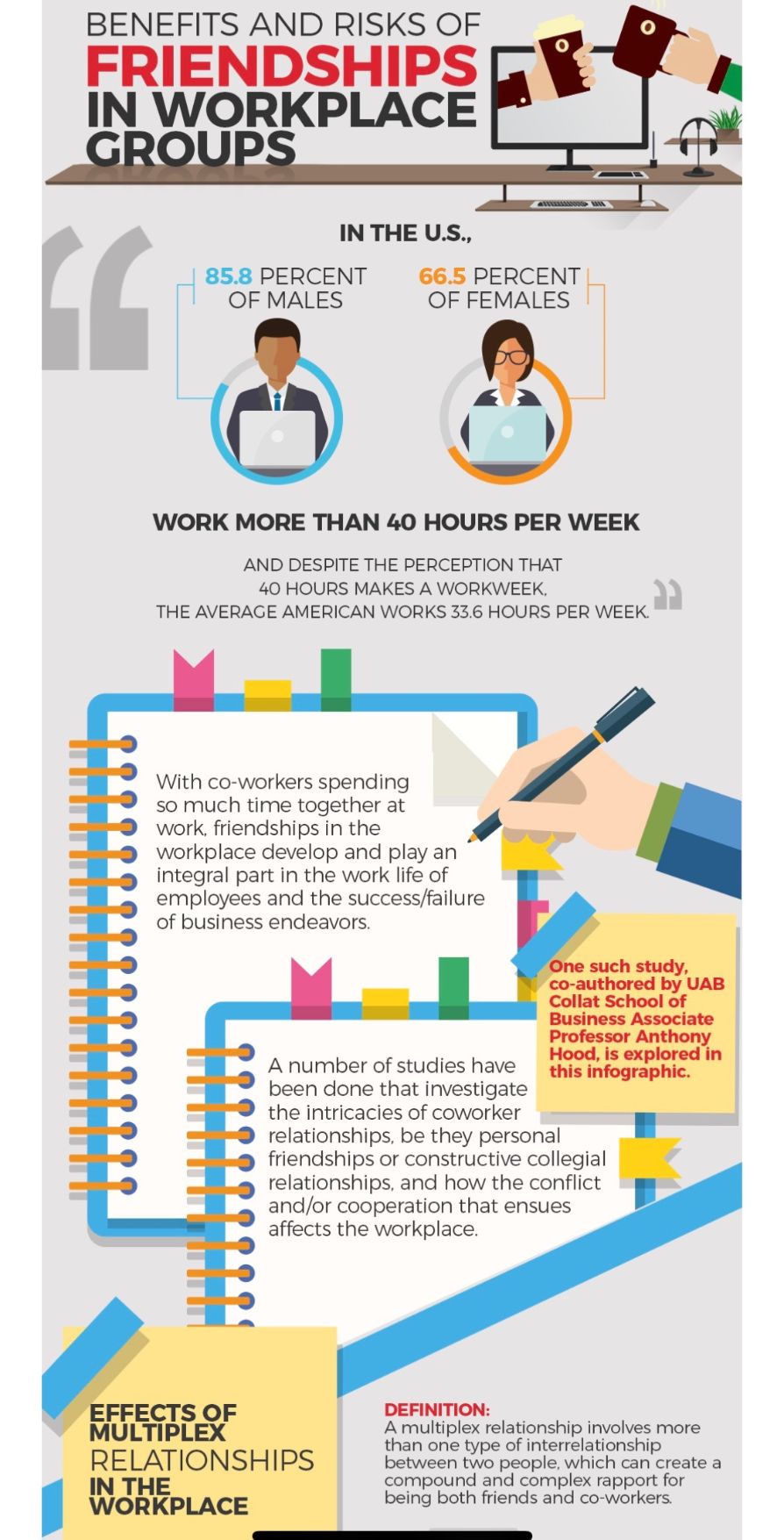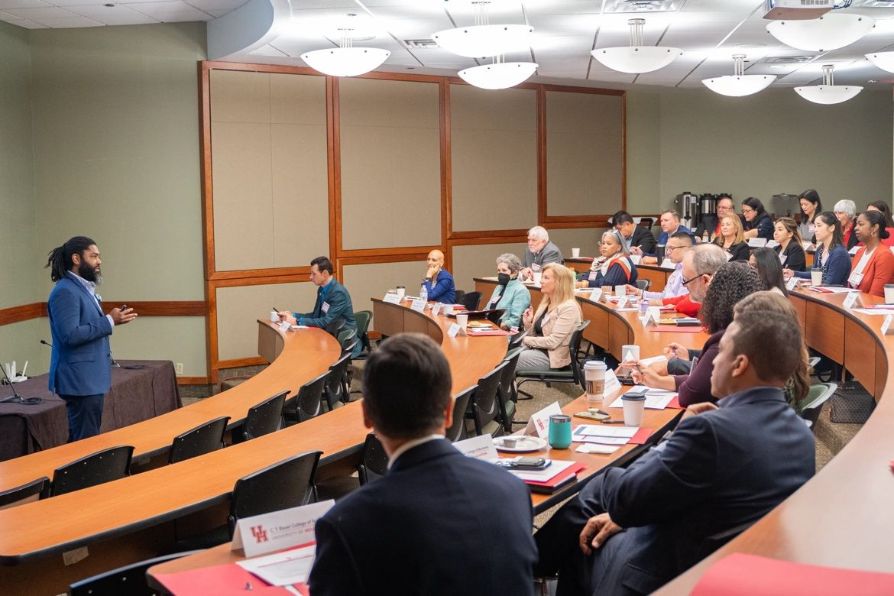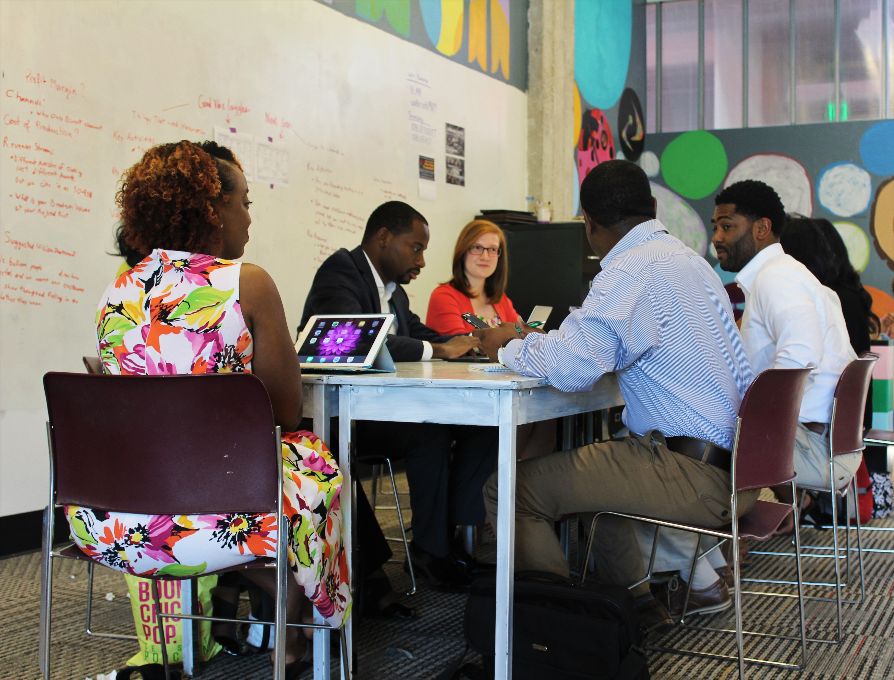One of the focal areas of my research is multiplex conflict–a term I coined while attempting to make sense of unexpected findings in my dissertation. Specifically, I was curious regarding the extent to which a) friends experience conflict with one another and if so, b) whether such conflicts are better or worse for team performance than conflicts among non-friends (such as mere acquaintances). I was also curious about whether the presence of friendship affected the extent to which teammates perceived different types (business vs personal disagreements) and levels (major vs minor disputes) of conflict between them.
What began as a simple research question, ultimately evolved into a program of research composed of:
- peer-reviewed journal articles (such as conflicts between friends and non-friends, between advice seekers and sources and between supervisors and subordinates).
- related studies with implications for unethical behavior between friends and peer advisors.
- a podcast episode (the Bold Future Podcast)
- workshops (e.g. CCTS, CTSTP and HDRTP)
- a list of resources to support more effective teamwork
- numerous conference presentations
Coverage
This research has also been picked up by others including:
- cited by a pair of researchers from Yale and Stanford in their Harvard Business Review article Having Work Friends Can Be Tricky, but It’s Worth It.
- cited in the top journal in our field, Academy of Management Review in the article Friends Without Benefits: Understanding the Dark Sides of Workplace Friendship.
- cited again in the Academy of Management Review in the article A Network Conceptualization of Team Conflict.
- cited in the Journal of Management in the article Multidimensionality: A Cross-Disciplinary Review and Integration.
- cited in the Academy of Management Journal in the article A functional model of workplace envy and job performance: When do employees capitalize on envy by learning from envied targets?
- recommended as a direction for future research in the article Creating High Performance Teamwork in Organizations published in Human Resource Management Review.
The following infographic illustrates some of the tenets of #multiplexconflict.
Related Works:
- Tillman, C., Gonzalez, K., Whitman, M. V., Kacmar, K. M., & Hood, A. C. (in press). A multi-functional view of moral disengagement: Exploring the effects of learning the consequences. Frontiers in Psychology: Personality and Social Psychology, 8: 2286. doi: 10.3389/fpsyg.2017.02286.
- Marineau, J. E., Hood, A. C., & Labianca, G. (2017). Multiplex conflict: Examining the effects of overlapping task and relationship conflict on advice-seeking in organizations. Journal of Business and Psychology.
- Tillman, C. J., Hood, A. C., Richard, O. (2017). Supervisor–subordinate relationship conflict asymmetry and subordinate turnover intentions: The mediating roles of stress and counterproductive work behaviors. Journal of Behavioral and Applied Management. 17(3): 169-196. doi: 10.21818/jbam.17.3.1.
- Hood, A. C., Cruz, K., & Bachrach, D. G. (2016). Conflicts with friends: A multiplex view of friendship and conflict and its association with performance in teams. Journal of Business and Psychology. doi:10.1007/s10869-016-9436-y.
- Tillman, C. J., Hood, A. C., Lawrence, E. L., & Kacmar, M. K. (2014). When Birds of a Feather Flock Together: The Role of Core-Self Evaluations in the Network Unethicality and Unethical Choice Relationship. Ethics and Behavior.
- A conversation with Dr. Anthony C. Hood, (2016). Bold Future Podcast. http://www.boldfuture.co/podcast/2017/1/2/anthony-hood-phd-professor-uab-collat-school-of-business.
- Burkus, D. (2017). Work Friends Make Us More Productive (Except When They Stress Us Out) https://hbr.org/2017/05/work-friends-make-us-more-productive-except-when-they-stress-us-out?referral=03758&cm_vc=rr_item_page.top_right.




